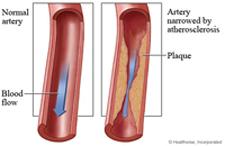
September 28, 2011 — A clinical trial by Resverlogix Corp. is evaluating the early effects of a new drug compound in atherosclerotic plaque regression. The study is focused on patients with coronary artery disease who have a low level of high-density lipoprotein cholesterol (HDL-C).
The company said study sites for the Phase 2b ApoA-l Synthesis Stimulation in Acute Coronary Syndrome (ASSURE) clinical trial have now been activated; the goal is to examine the early effects of RVX-208 induced ApoA-I production on plaque regression. A total of 310 patients are expected to participate, of which 77 will receive placebo and 233 will be given 100 mg twice daily of RVX-208.
This step opens the door for patient enrollment in ASSURE, a 26-week, multi-center, double-blind, randomized, parallel group, placebo-controlled clinical trial; it will assess coronary atherosclerotic plaque changes in response to Resverlogix’s RVX-208 using intravascular ultrasound (IVUS).
The primary endpoint will be IVUS measurement of a change in percent atheroma volume from baseline to 26 weeks. Secondary objectives are: (i) safety and tolerability of RVX-208 as reflected by adverse events, and (ii) effects of RVX-208 on HDL and non-HDL lipid parameters.
Enrollment is expected to be complete by the end of the year. The study chair is Steven Nissen, M.D., chairman of the Cleveland Clinic department of cardiovascular medicine. The principal investigator for the trial is Stephen Nicholls, M.D., medical director of intravascular ultrasound at Cleveland Clinic.
"The ASSURE protocol arose from valuable knowledge gained in our Phase 2 ASSERT trial. In ASSERT, subjects given RVX-208 had; (i) a dose dependent and sustained increase in ApoA-l levels, (ii) a significant rise in HDL-C, especially alpha-1 particles or functional HDL, and (iii) a highly statistically significant increase in large HDL particles. These pronounced changes in the HDL profile arises from the initial RVX-208 induced increase in ApoA-I production and these changes in HDL point to enhanced RCT which in turn gives rise to the potential for atherosclerotic plaque regression," stated Jan Johansson, M.D., senior vice president of medical affairs.
"Furthermore, we were encouraged by the dose-response relationship for lowering of hyper sensitive C-reactive protein (hs-CRP), also suggesting a beneficial effect on the artery wall," Johansson added.
For more information: www.resverlogix.com


 January 28, 2026
January 28, 2026 









